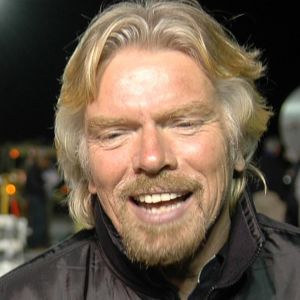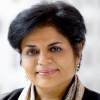Want to know what books Harry Wu recommends on their reading list? We've researched interviews, social media posts, podcasts, and articles to build a comprehensive list of Harry Wu's favorite book recommendations of all time.
1

Jung Chang, Jon Halliday | 4.17
Based on a decade of research, and on interviews with many of Mao's close circle in China who have never talked before - and with virtually everyone outside China who had significant dealings with him - this is the most authoritative life of Mao ever written. It is full of startling revelations, exploding the myth of the Long March, and showing a completely unknown Mao: he was not driven by idealism or ideology; his intimate and intricate relationship with Stalin went back to the 1920s, ultimately bringing him to power; he welcomed Japanese occupation of much of China; and he schemed,... more Based on a decade of research, and on interviews with many of Mao's close circle in China who have never talked before - and with virtually everyone outside China who had significant dealings with him - this is the most authoritative life of Mao ever written. It is full of startling revelations, exploding the myth of the Long March, and showing a completely unknown Mao: he was not driven by idealism or ideology; his intimate and intricate relationship with Stalin went back to the 1920s, ultimately bringing him to power; he welcomed Japanese occupation of much of China; and he schemed, poisoned and blackmailed to get his way. After Mao conquered China in 1949, his secret goal was to dominate the world. In chasing this dream he caused the deaths of 38 million people in the greatest famine in history. In all, well over 70 million Chinese perished under Mao's rule - in peacetime. less 
Richard BransonToday is World Book Day, a wonderful opportunity to address this #ChallengeRichard sent in by Mike Gonzalez of New Jersey: Make a list of your top 65 books to read in a lifetime. (Source)

Harry WuTo this day we don’t really know much about Mao’s personal history. The Communist Party portrays him as the Great Leader. His smiling image is everywhere. Even the political system still follows his model. So what Chang did was delve deeper to discover who is the real Mao? You hear from people like his private doctor talking about his personal history (Source)
2

Three remarkable women--grandmother, mother, and daughter--struggle to survive in a true-life saga that spans 20th-century China with all its violence: wars, invasions, revolution, and continuing upheaval. A thrilling adventure story, Wild Swans is an important work of history, and a breathtaking testimony to the human spirit. 16 pages of photographs. more Three remarkable women--grandmother, mother, and daughter--struggle to survive in a true-life saga that spans 20th-century China with all its violence: wars, invasions, revolution, and continuing upheaval. A thrilling adventure story, Wild Swans is an important work of history, and a breathtaking testimony to the human spirit. 16 pages of photographs. less 
Richard BransonToday is World Book Day, a wonderful opportunity to address this #ChallengeRichard sent in by Mike Gonzalez of New Jersey: Make a list of your top 65 books to read in a lifetime. (Source)

Vishakha DesaiTo me Wild Swans is one of those iconic books for understanding the generations of Chinese women. She is from this amazing intellectual family and it’s about what happens to them. The book just has this tremendous power. It’s an amazing journey. It’s about what women do to survive and also how they suffer. (Source)

Harry WuWild Swans is talking about people who are living at the highest level of society but they are still suffering persecution and live in fear. And the peasants in the village became slaves, they became nothing. So what the book does brilliantly is give a real insight into what life was like for ordinary people against the backdrop of the ever-changing China. (Source)
3

War Trash, the extraordinary new novel by the National Book Award–winning author of Waiting, is Ha Jin’s most ambitious work to date: a powerful, unflinching story that opens a window on an unknown aspect of a little-known war—the experiences of Chinese POWs held by Americans during the Korean conflict—and paints an intimate portrait of conformity and dissent against a sweeping canvas of confrontation.
Set in 1951–53, War Trash takes the form of the memoir of Yu Yuan, a young Chinese army officer, one of a corps of “volunteers” sent by Mao to help shore up the Communist side in... more War Trash, the extraordinary new novel by the National Book Award–winning author of Waiting, is Ha Jin’s most ambitious work to date: a powerful, unflinching story that opens a window on an unknown aspect of a little-known war—the experiences of Chinese POWs held by Americans during the Korean conflict—and paints an intimate portrait of conformity and dissent against a sweeping canvas of confrontation.
Set in 1951–53, War Trash takes the form of the memoir of Yu Yuan, a young Chinese army officer, one of a corps of “volunteers” sent by Mao to help shore up the Communist side in Korea. When Yu is captured, his command of English thrusts him into the role of unofficial interpreter in the psychological warfare that defines the POW camp.
Taking us behind the barbed wire, Ha Jin draws on true historical accounts to render the complex world the prisoners inhabit—a world of strict surveillance and complete allegiance to authority. Under the rules of war and the constraints of captivity, every human instinct is called into question, to the point that what it means to be human comes to occupy the foremost position in every prisoner’s mind.
As Yu and his fellow captives struggle to create some sense of community while remaining watchful of the deceptions inherent in every exchange, only the idea of home can begin to hold out the promise that they might return to their former selves. But by the end of this unforgettable novel—an astonishing addition to the literature of war that echoes classics like Dostoevsky’s Memoirs from the House of the Dead and the works of Siegfried Sassoon and Wilfred Owen—the very concept of home will be more profoundly altered than they can even begin to imagine. less 
Bruce CumingsHa Jin’s novel is obviously based on either his experience or his father’s experience of the Korean War. There are some very stark and striking descriptions. He didn’t have access to South Korea, but he has this wonderful ability to treat everybody fairly and to listen to the songs of women guerrillas that were captured by South Korean prison camps and enjoy listening to them. He does the same... (Source)

Harry WuIt’s written by a young Chinese author who came to the United States. He wrote this book in his second language and still won lots of awards for it, which is very impressive. I think this is a really good book to show the West more about what is going on in China. People think that it’s all about economic growth but there is so much more to our history than that. (Source)
4

In the late 1950s and early 1960s, the Chinese people suffered what may have been the worst famine in history. Over thirty million perished in a grain shortage brought on not by flood, drought, or infestation, but by the insanely irresponsible dictates of Chairman Mao Ze-dong's "Great Leap Forward," an attempt at utopian engineering gone horribly wrong.
Journalist Jasper Becker conducted hundreds of interviews and spent years immersed in painstaking detective work to produce Hungry Ghosts, the first full account of this dark chapter in Chinese history. In this horrific story of... more In the late 1950s and early 1960s, the Chinese people suffered what may have been the worst famine in history. Over thirty million perished in a grain shortage brought on not by flood, drought, or infestation, but by the insanely irresponsible dictates of Chairman Mao Ze-dong's "Great Leap Forward," an attempt at utopian engineering gone horribly wrong.
Journalist Jasper Becker conducted hundreds of interviews and spent years immersed in painstaking detective work to produce Hungry Ghosts, the first full account of this dark chapter in Chinese history. In this horrific story of state-sponsored terror, cannibalism, torture, and murder, China's communist leadership boasted of record harvests and actually increased grain exports, while refusing imports and international assistance. With China's reclamation of Hong Kong now a fait accompli, removing the historical blinders is more timely than ever. As reviewer Richard Bernstein wrote in the New York Times, "Mr. Becker's remarkable book...strikes a heavy blow against willed ignorance of what took place." less 
Harry WuThis is all about the famine in China from 1958-1962. It was very much part of Mao’s plan, ‘The Great Leap Forward’. So the book is a historical record of how many people died, maybe 35 to 40 million, although the Chinese authorities still refuse to release all the information. The author, Jasper Becker, had lived in China for many years as a correspondent. (Source)
5

Using official and unofficial sources, an internationally renowned sinologist presents a compelling account of the power struggle that has arisen in post-Tiananmen China. Lam defines the nature of the Deng legacy, analyzes the warring interest groups that have emerged and profiles the major contenders lining up to fill Deng's position. He predicts what the future holds for China in the wake of Deng's regime. more Using official and unofficial sources, an internationally renowned sinologist presents a compelling account of the power struggle that has arisen in post-Tiananmen China. Lam defines the nature of the Deng legacy, analyzes the warring interest groups that have emerged and profiles the major contenders lining up to fill Deng's position. He predicts what the future holds for China in the wake of Deng's regime. less 
Harry Wuthe author is from Hong Kong. He was a newspaper correspondent for many years and he’s written lots of articles about the current situation. Later he was punished by the Chinese for telling the truth. The Chinese media is completely controlled by the Communist Party Propaganda Department. If you violate the rule of the department you will be punished. What Willy Wo-Lap Lam is doing is talking... (Source)
Don't have time to read Harry Wu's favorite books? Read Shortform summaries.
Shortform summaries help you learn 10x faster by:
- Being comprehensive: you learn the most important points in the book
- Cutting out the fluff: you focus your time on what's important to know
- Interactive exercises: apply the book's ideas to your own life with our educators' guidance.




